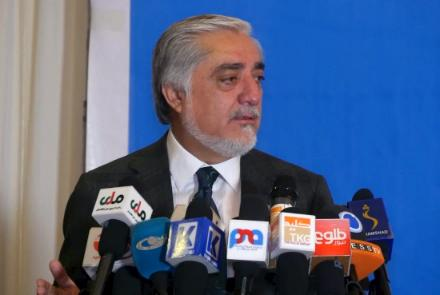Abdullah Opposes Plan to Shift Primary School to Mosques

Abdullah Abdullah, head of the High Council for National Reconciliation, on Tuesday expressed strong opposition to the Education Ministry’s plan to shift primary school classes—the first three years in school—to mosques, saying it is “completely wrong” and a “mistake.”
The plan was made public by the Ministry of Education (MoE) on Sunday but has faced a widespread reaction by activists, students and other critics. The ministry on Monday defended its plan and said it will only be implemented in areas that have no schools.
The acting minister of education, Rangina Safi, who did not receive a vote of confidence by the parliament last week to confirm her as a full-fledged minister, is also under criticism for removing the office of the deputy minister of education for Islamic studies. She has changed the office to a directorate and has said the department will be given more authority.
Ponting to this decision, Abdullah said the deputy education minister’s office for Islamic studies should have been strengthened instead of being changed to a directorate.
“As a citizen of this country, I know that it is a completely wrong decision and is a mistake –down to its foundation–for many reasons. We have not helped the madrassas reach that level,” Abdullah said at an event on Tuesday.
Sources on Monday said that most of employees of the Ministry of Education were informed about the plan from social media after it was posted on Sunday evening.
The Presidential Palace spokesman Sediq Sediqqi on Monday said the government is aware of the plan and that it has been misinterpreted.
“They have plans on hand that are only for strengthening the curriculum,” Sediqqi said.
Rangina Hamidi was rejected by the parliament as she could not get a vote of confidence last week.
Some lawmakers said that, based on the law, acting ministers who are rejected by the parliament cannot continue their job as caretakers in an acting minister capacity.
